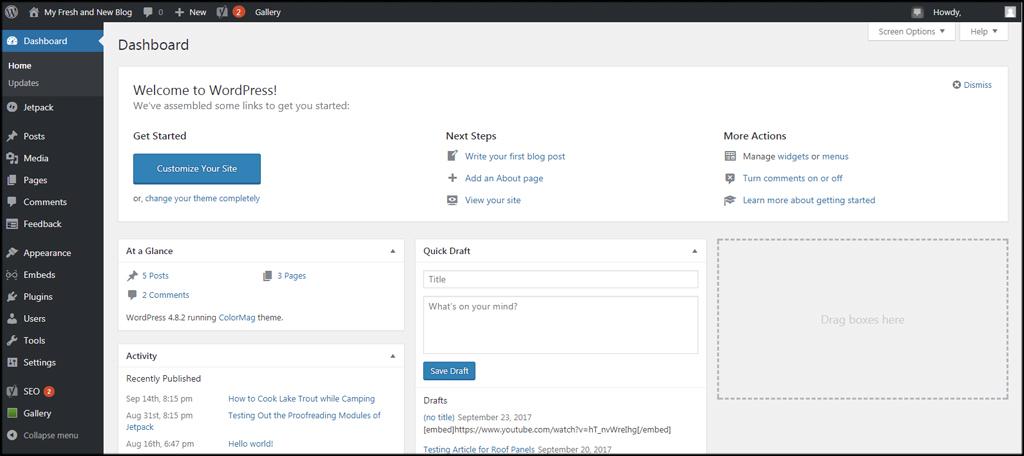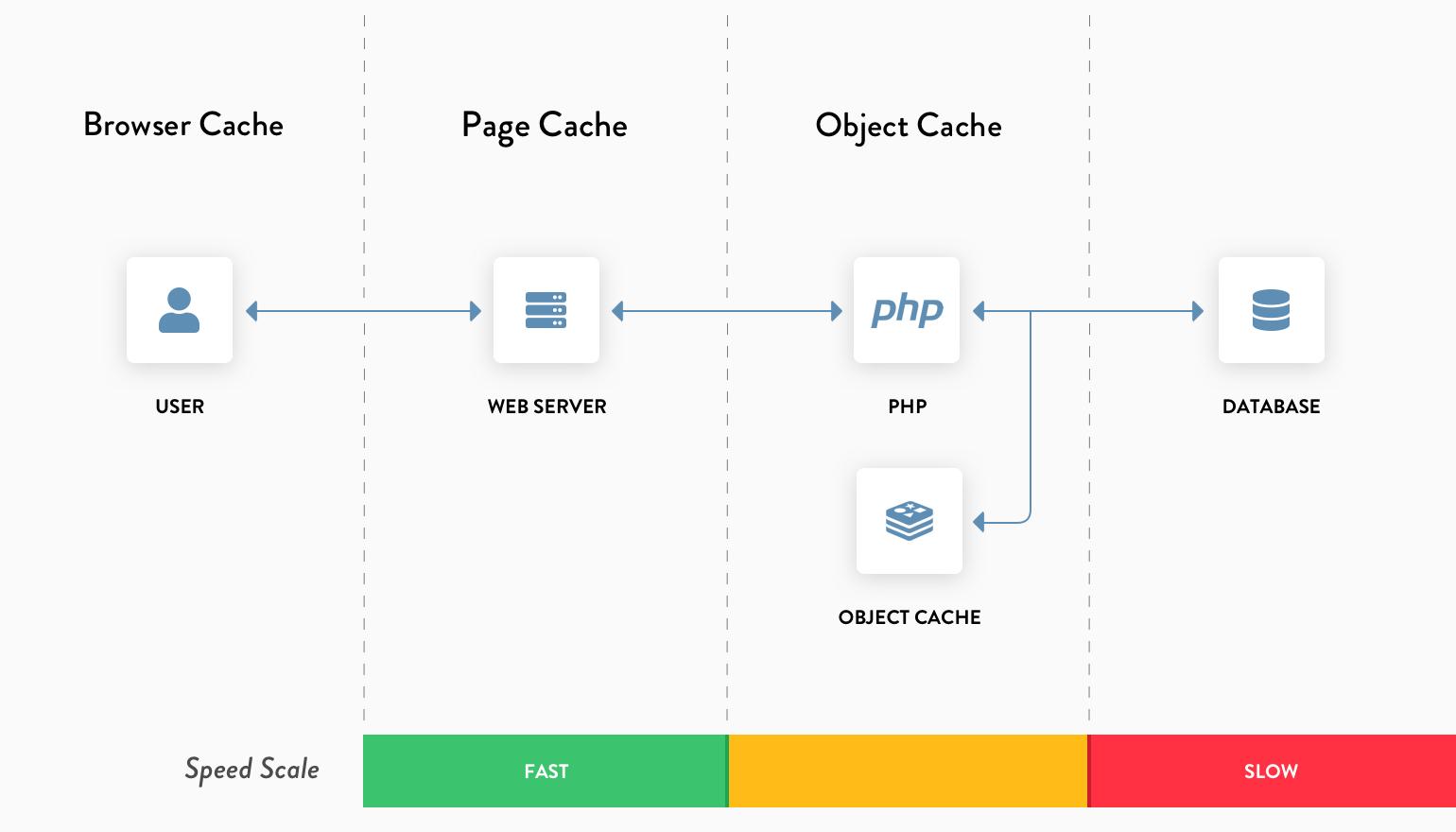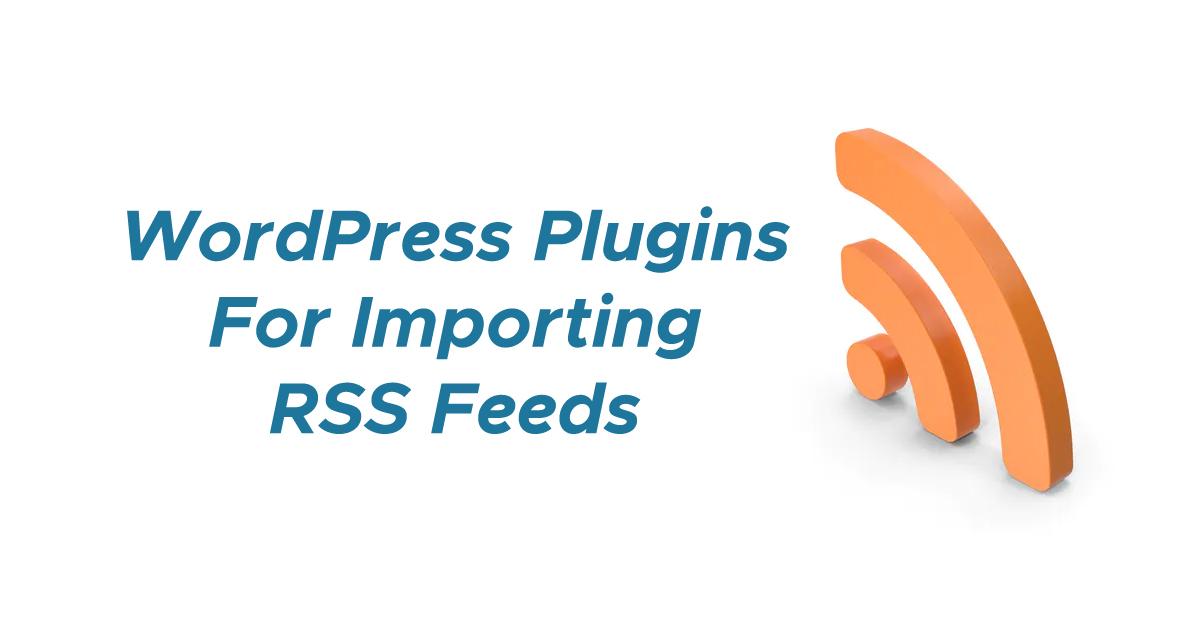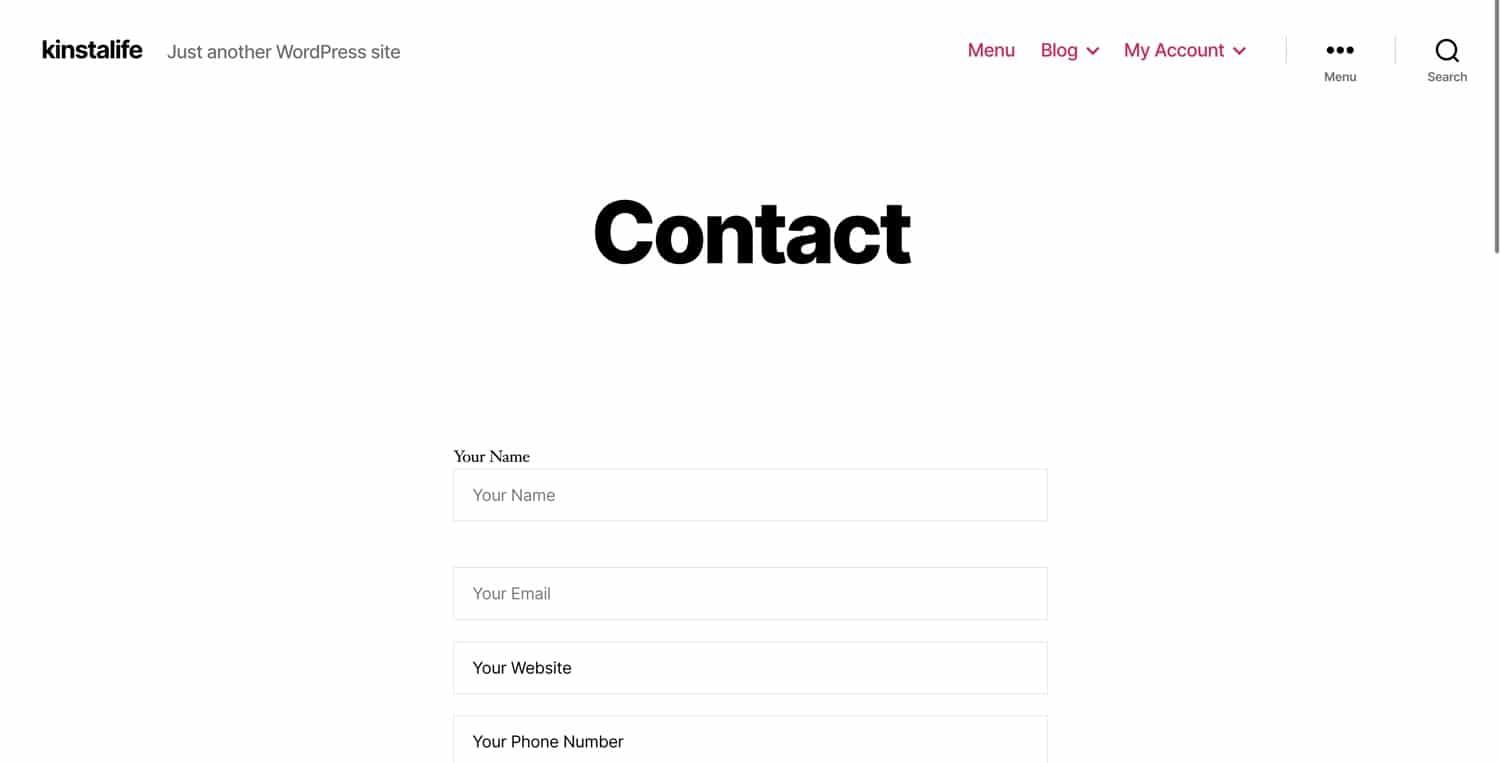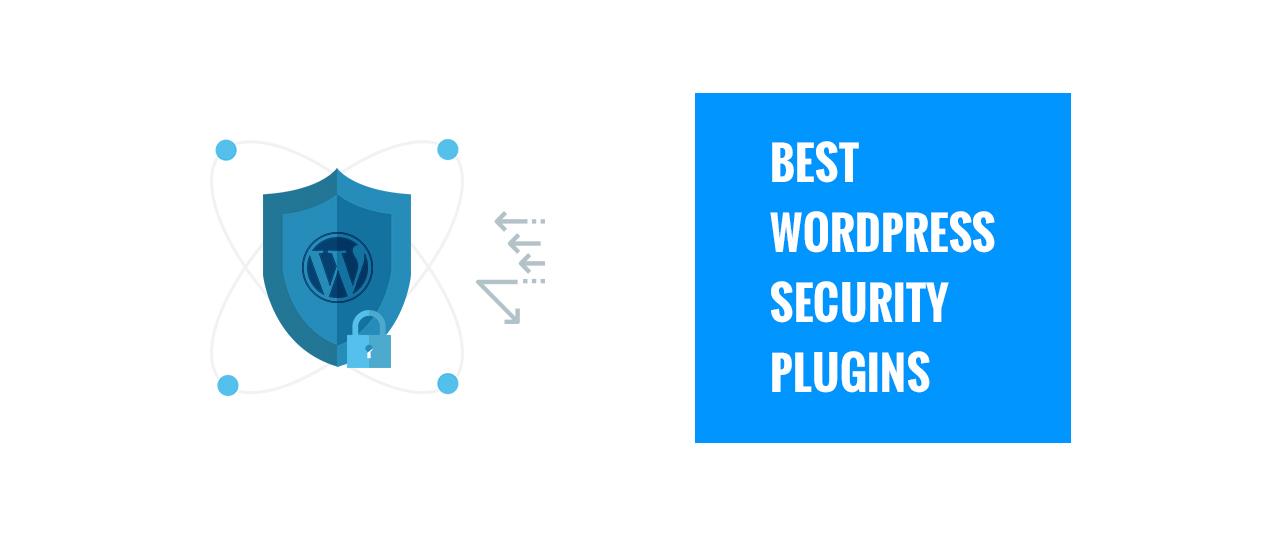
When it comes to running a website, especially on a platform as popular as WordPress, security should be at the top of your priority list. Picture this: you’ve poured your heart and soul into your site, sharing valuable content, building a loyal audience, and perhaps even generating income. The last thing you want is for it all to be jeopardized by a security breach. With countless threats lurking in the digital shadows, from pesky hackers to malicious bots, safeguarding your online presence is more crucial than ever. The good news? There’s a wealth of WordPress security plugins designed to keep your site safe and sound. But with so many options available, how do you choose the best one for your specific needs? In this article, we’ll dive into the world of WordPress security plugins, exploring what makes them essential and highlighting some of the top contenders so you can make an informed decision. Your peace of mind is just a plugin away!
Understanding the Importance of WordPress Security
When it comes to managing a WordPress website, security should never be an afterthought. With over 40% of websites on the internet powered by WordPress, it has become a prime target for hackers and malicious attacks. Understanding the importance of securing your site is vital, not just for the integrity of your data, but also for the trust and loyalty of your visitors.
Every day, thousands of websites face potential threats, from simple spam bots to complex hacking schemes. The ramifications of a security breach can be severe, including:
- Data Loss: Sensitive information can be compromised, leading to identity theft or data leaks.
- Downtime: A hacked site may end up offline, resulting in lost revenue and frustrated users.
- SEO Damage: Search engines may blacklist your site, making it invisible to potential visitors.
- Reputational Harm: Your brand’s credibility can suffer if customers feel unsafe engaging with your site.
It’s clear that the stakes are high, which is why incorporating a reliable WordPress security plugin is essential. A good security plugin acts as a shield, proactively defending against a variety of threats. Here’s why you should invest in one:
- Real-Time Monitoring: Many security plugins offer continuous scanning for vulnerabilities and unauthorized access attempts.
- Firewall Protection: A strong firewall can block malicious traffic before it reaches your site.
- Backup Solutions: Regular backups ensure that you can quickly restore your site in case of an attack.
- Brute Force Attack Prevention: These plugins can limit login attempts and enforce strong password policies.
When choosing a security plugin, it’s crucial to consider the features that matter most to your website’s needs. Here’s a quick comparison of some popular WordPress security plugins:
| Plugin | Key Features | Price |
|---|---|---|
| Wordfence | Firewall, Malware Scan, Login Security | Free / Premium from $99/year |
| Sucuri Security | Audit Logs, Malware Scanning, Hardening | Free / Premium from $199.99/year |
| iThemes Security | Two-Factor Authentication, File Change Detection | Free / Premium from $80/year |
Ultimately, the right security plugin can not only protect your website but also give you peace of mind. By investing in the right tools and practices, you’ll be ensuring a safer experience for both yourself and your visitors. Remember, in the digital world, being proactive about security is always better than being reactive.
Common Security Threats Facing WordPress Websites
WordPress websites are an attractive target for cybercriminals due to their popularity and the often lax security practices of their owners. Understanding the common security threats can significantly enhance your website’s defense mechanisms. Here’s a rundown of some prevalent threats:
- Malware Infections: Malicious software can be injected into your site, leading to data theft, defacement, or even hosting your site as part of a botnet.
- Brute Force Attacks: Attackers attempt to gain access by guessing passwords, often using automated tools that can try thousands of combinations in seconds.
- SQL Injection: This technique involves injecting malicious SQL queries into your site’s database, allowing attackers to manipulate or extract sensitive information.
- Cross-Site Scripting (XSS): XSS vulnerabilities allow attackers to inject scripts into web pages viewed by other users, potentially stealing session cookies or credentials.
- Unsecured Plugins and Themes: Many vulnerabilities arise from outdated or poorly coded third-party plugins and themes, making it essential to keep them updated.
A combination of these threats can not only compromise your site’s integrity but can also lead to loss of customer trust and revenue. Regularly updating your WordPress version, themes, and plugins is crucial, but it’s not the only step you should take. Here’s a table summarizing these threats and potential impacts:
| Threat Type | Potential Impact |
|---|---|
| Malware Infections | Data theft, defaced site |
| Brute Force Attacks | Unauthorized access |
| SQL Injection | Database manipulation |
| Cross-Site Scripting (XSS) | Session hijacking |
| Unsecured Plugins/Themes | Exploitable vulnerabilities |
Additionally, consider these proactive strategies to fortify your website:
- Implementing Two-Factor Authentication: Adding an extra layer of security can significantly reduce the risk of unauthorized access.
- Regular Backups: Frequent backups ensure that you can restore your site quickly in case of an attack.
- Using a Web Application Firewall (WAF): A WAF can help filter out malicious traffic before it reaches your server.
- Monitoring and Scanning: Regularly check your site for vulnerabilities and malware to address issues before they escalate.
By understanding these common security threats and implementing effective measures, you can create a robust shield that protects your WordPress website from potential intrusions.
What to Look for in a WordPress Security Plugin
When selecting a WordPress security plugin, you want to ensure it offers comprehensive protection tailored to your website’s needs. Here are some key features to consider:
- Firewall Protection: A robust firewall helps prevent malicious traffic from accessing your site. Look for plugins that offer both a web application firewall and a server-level firewall.
- Malware Scanning: Regular scans can detect vulnerabilities and malware. Opt for plugins that provide automatic scanning with an option for manual checks.
- Brute Force Protection: This feature limits login attempts to thwart unauthorized access. Choose plugins that can temporarily block IP addresses after multiple failed login attempts.
- Two-Factor Authentication (2FA): Adding an extra layer of security through 2FA can significantly reduce the risk of unauthorized logins. Look for easy-to-use options that integrate well with your existing setup.
Another critical aspect to evaluate is the plugin’s update frequency. Cyber threats evolve continuously, and a plugin that doesn’t receive regular updates might not be effective against the latest vulnerabilities. Check for:
- Update Logs: Look for plugins with a history of frequent updates, ideally accompanied by release notes that outline what’s been fixed or improved.
- Changelog Transparency: A detailed changelog demonstrates the developer’s commitment to addressing security issues promptly.
Consider the user interface and ease of use. A user-friendly dashboard can make managing your website’s security less daunting. Features to look for include:
- Simple Installation: Choose plugins that are easy to install and configure, especially if you’re not tech-savvy.
- Intuitive Navigation: A well-organized interface allows you to access settings and reports without getting overwhelmed.
Additionally, support and documentation are crucial. Quality support can make a significant difference, especially during a security crisis. Look for:
- Comprehensive Documentation: This should include setup guides, FAQs, and troubleshooting tips.
- Responsive Support: Check for availability of support via chat, forums, or email. Quick responses can be lifesavers.
evaluate the pricing model associated with the plugin. While some free plugins offer decent features, premium options typically provide advanced security measures. When assessing costs, consider:
- Value for Money: Ensure that the features justify the price.
- Trial Periods: Some plugins offer trial periods, allowing you to test features before committing financially.
| Feature | Importance |
|---|---|
| Firewall Protection | High |
| Malware Scanning | High |
| Brute Force Protection | Medium |
| Two-Factor Authentication | High |
| Regular Updates | High |

Top Features to Expect from a Security Plugin
When selecting a security plugin for your WordPress website, several key features can make all the difference in safeguarding your online presence. Here’s what you should look for:
- Real-Time Threat Detection: The best security plugins offer real-time monitoring, alerting you instantly to any suspicious activity. This proactive approach helps prevent potential breaches before they escalate.
- Firewall Protection: A robust firewall is essential. Look for plugins that provide a Web Application Firewall (WAF) to block malicious traffic and filter out threats before they reach your site.
- Malware Scanning: Regular malware scans should be a standard feature. Choose a plugin that not only scans for malware but also provides detailed reports and automatic clean-up options.
- Login Security: Features like two-factor authentication (2FA), login attempt limits, and CAPTCHA can help protect against unauthorized access. These measures add essential layers of security.
- Backup Solutions: A security plugin that offers backup solutions ensures that your data can be quickly restored in case of an attack or vulnerability. Regular backups are an essential safety net.
- Security Audits: Look for plugins that perform comprehensive security audits. Understanding vulnerabilities in your site can help you address issues before they become significant problems.
- Performance Optimization: Security shouldn’t compromise your website’s performance. Choose a plugin designed to enhance security without slowing down your site.
| Feature | Description | Importance |
|---|---|---|
| Real-Time Threat Detection | Instant alerts for suspicious activity. | High |
| Firewall Protection | Blocks malicious traffic. | Critical |
| Malware Scanning | Regular checks for harmful software. | Essential |
| Login Security | Prevents unauthorized access. | High |
| Backup Solutions | Regular backups of your website. | Very Important |
In addition to these features, consider user-friendly interfaces and comprehensive customer support. A complex plugin can deter you from effectively managing your website’s security. Choose a solution that offers clear guidance, tutorials, and responsive support to ensure you can navigate any issues that may arise.
make sure the plugin you choose is regularly updated. Cyber threats evolve rapidly, and ongoing updates are crucial for staying one step ahead of hackers. A well-maintained plugin will adapt to new vulnerabilities, providing you with the peace of mind that your website is secure.
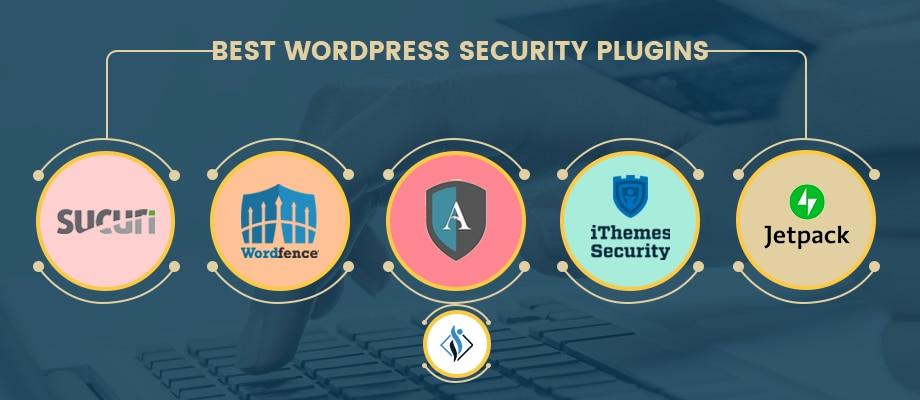
A Deep Dive into the Best Security Plugins Available
When it comes to securing your WordPress website, choosing the right security plugin is crucial. With so many options available, it can be overwhelming to figure out which one suits your needs best. Below, we’ll explore some of the top contenders, each offering unique features tailored for various types of users.
First up is Wordfence Security. This plugin is a favorite among many WordPress users due to its comprehensive features, including:
- Firewall Protection: Blocks malicious traffic before it reaches your website.
- Malware Scanner: Regularly scans your website for vulnerabilities and malware.
- Login Security: Implements two-factor authentication and CAPTCHA to secure login pages.
iThemes Security is another popular choice, particularly known for its user-friendly interface. It offers:
- Brute Force Protection: Limits login attempts to thwart unauthorized access.
- File Change Detection: Alerts you when files on your website have been modified.
- Security Checklists: Provides actionable steps to enhance your site’s security.
If you’re looking for an all-in-one solution, Sucuri Security might be the perfect fit. This plugin excels in:
- Website Monitoring: Continuous monitoring for security threats and vulnerabilities.
- Blacklist Monitoring: Checks if your site is listed on any blacklists.
- Post-Hack Security Actions: Offers a series of steps to take if your site is compromised.
For those who prefer simplicity, All In One WP Security & Firewall provides a range of features while maintaining an easy setup process. Key highlights include:
- Security Ratings: Offers a score based on your site’s security level.
- Firewall Rules: Customize firewall settings to suit your preference.
- Database Security: Protect your database with various security measures.
Here’s a quick comparison to help you decide:
| Plugin | Key Features | Best For |
|---|---|---|
| Wordfence Security | Firewall, Malware Scanner, Login Security | Comprehensive Security |
| iThemes Security | Brute Force Protection, File Change Detection | User-Friendly Interface |
| Sucuri Security | Website Monitoring, Blacklist Monitoring | Post-Hack Actions |
| All In One WP Security | Security Ratings, Firewall Rules | Simple Setup |
Ultimately, the best security plugin for your WordPress site depends on your specific needs and level of expertise. Whether you want a robust solution with extensive features or a simple setup, there’s a plugin out there for you. Take the time to evaluate your options, keeping in mind the unique characteristics and functionalities that each plugin offers. Remember, the security of your website is an ongoing process, and investing in the right tools is a significant step toward safeguarding your online presence.
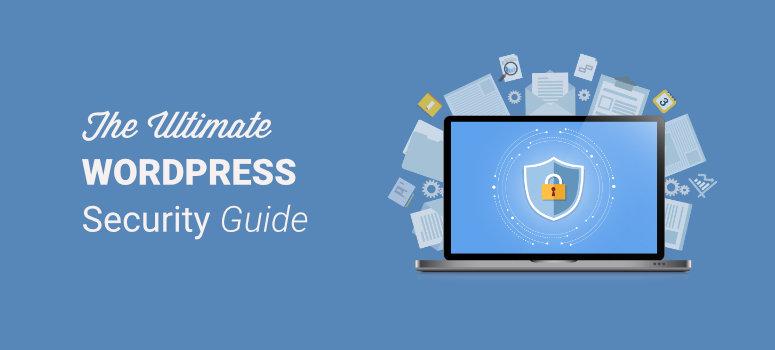
Comparing Popular WordPress Security Plugins
When it comes to safeguarding your WordPress site, choosing the right security plugin is crucial. Several options stand out, each with its unique features and advantages. Let’s dive into a comparison of some of the most popular WordPress security plugins available today:
| Plugin | Key Features | Pricing |
|---|---|---|
| Wordfence |
| Free / $99 per year |
| Sucuri |
| $199.99 per year |
| iThemes Security |
| Free / $80 per year |
| All In One WP Security & Firewall |
| Free |
Wordfence is a favorite among many WordPress users, primarily for its comprehensive free features. The plugin provides robust firewall protection and real-time monitoring, ensuring that your site is shielded against threats. With its intuitive interface, even beginners can navigate through its options without feeling overwhelmed.
If you’re looking for a service that goes beyond just a plugin, Sucuri might be your best bet. Known for its exceptional malware cleanup service and website monitoring capabilities, Sucuri offers a complete package for serious website owners. While it comes with a price tag, many consider the investment worth it for the peace of mind it provides.
iThemes Security appeals to users who value user-friendly interfaces paired with essential security features. The plugin’s two-factor authentication and brute force protection can significantly enhance your site’s defenses. Plus, the option for automated database backups can save you from potential data loss during a security breach.
for those who prefer a fully free solution, All In One WP Security & Firewall provides ample features without any associated costs. This plugin includes a unique security grading system that helps you identify and rectify security vulnerabilities quickly. It’s an excellent option for those just starting their WordPress security journey.
Ultimately, the best security plugin for your WordPress site depends on your specific needs and budget. Assessing the strengths and weaknesses of each plugin can help you make an informed decision that keeps your website safe and sound.
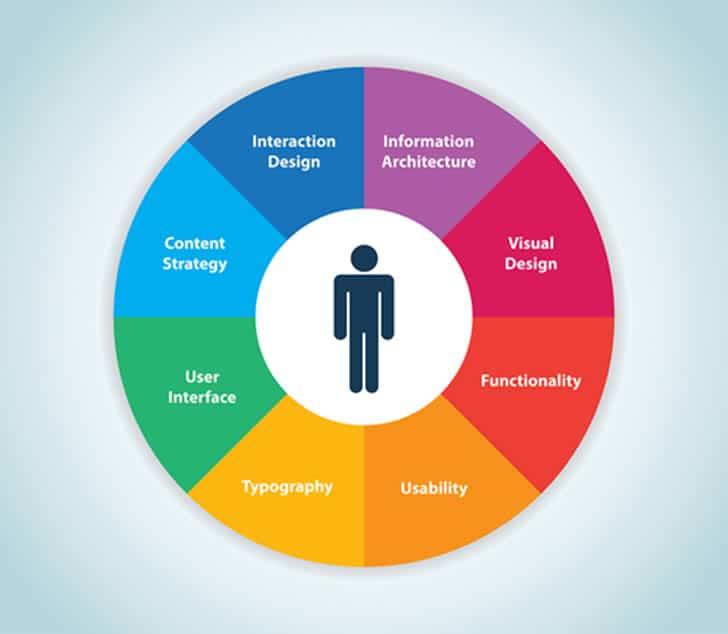
User Experience: How Easy Are They to Use?
When choosing a security plugin for your WordPress site, ease of use is paramount. A plugin that is complicated or cumbersome can quickly become a burden rather than a shield. Most reputable security plugins are designed with the user in mind, ensuring that even those with little technical knowledge can navigate their features with confidence.
Here are some key aspects to consider regarding usability:
- Intuitive Dashboard: The best plugins feature a clean and user-friendly interface. Look for those that present critical information at a glance without overwhelming you with technical jargon.
- Simple Setup Process: A streamlined installation and setup process can save you time and frustration. Ideally, you want a plugin that guides you through the initial configuration with ease.
- One-Click Security Scans: Security plugins that offer one-click scanning options allow you to quickly check your site for vulnerabilities without diving deep into complex settings.
- Clear Documentation and Support: A robust knowledge base and responsive customer support can enhance your experience. Look for plugins that provide easy access to tutorials, FAQs, and dedicated support channels.
In terms of specific features, you may want to evaluate how each plugin handles regular updates. A plugin that prompts for updates or handles them automatically can significantly ease your workload. Also, consider whether it offers customizable settings so you can tailor the security measures to your specific needs without getting lost in a sea of options.
Moreover, compatibility with your existing themes and plugins is crucial. A good security plugin should integrate seamlessly with your WordPress setup, avoiding conflicts that can cause headaches down the road. Look for user reviews that specifically mention compatibility and ease of integration.
| Plugin | Ease of Use Rating | Setup Time | Support Options |
|---|---|---|---|
| Wordfence | ★★★★☆ | 10 minutes | Documentation, Forums |
| iThemes Security | ★★★★★ | 5 minutes | Live Chat, Email |
| Sucuri Security | ★★★★☆ | 15 minutes | Email, Phone |
Ultimately, the goal is to find a balance between comprehensive security features and an intuitive user experience. A plugin that feels overwhelming can lead to neglecting security altogether, which is counterproductive. Prioritize plugins that empower you to take control of your website’s safety without adding complexity to your workflow.
Investing time in testing the usability of different plugins can pay off significantly. Consider taking advantage of free trials or lite versions to explore their capabilities. This hands-on experience is invaluable in determining which plugin will seamlessly fit into your website management routine.
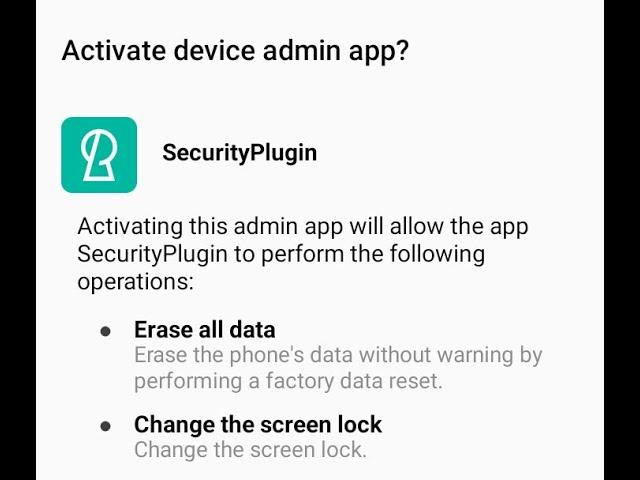
Integrating Your Security Plugin with Other Tools
In today’s digital landscape, simply installing a security plugin isn’t enough to safeguard your WordPress site effectively. To enhance your site’s protection, can create a formidable defense mechanism. This synergy ensures that vulnerabilities are addressed comprehensively and that your website remains resilient against various threats.
One of the most beneficial integrations is with firewall solutions. When your security plugin works in tandem with a firewall, it can effectively filter out malicious traffic before it even reaches your website. This dual-layer approach not only bolsters your security but also minimizes the load on your server. Consider using plugins like Wordfence or Sucuri, which have built-in firewall capabilities.
Another vital integration is with backup solutions. Regular backups are crucial for quick recovery in the event of a breach or data loss. By linking your security plugin with a reliable backup service, you ensure that your data is safe even if your site encounters issues. Some popular backup plugins that pair well include:
- UpdraftPlus
- BackWPup
- VaultPress
Integrating with a performance optimization tool can also amplify your website’s security. Many security plugins can slow down your site due to the extensive scanning processes they perform. By using a caching plugin like WP Rocket or W3 Total Cache, you can enhance your site’s loading speed while still maintaining security checks. This is essential, as site speed is a crucial factor in user experience and SEO rankings.
Consider connecting your security plugin with email notification services. This feature keeps you informed of any suspicious activity or potential threats in real time. Setting up alerts through services like Mailgun or SendGrid ensures that you’re always in the loop. Prompt notifications can help you act swiftly to mitigate risks, keeping your site secure.
Lastly, don’t overlook the power of analytics tools. Integrating your security plugin with analytics can provide you valuable insights into traffic patterns and potential vulnerabilities. Whether it’s Google Analytics or a dedicated security analytics platform, this integration empowers you to make data-driven decisions to fortify your site’s defenses.
| Integration Tool | Benefits |
|---|---|
| Firewall Solution | Blocks malicious traffic before it reaches your site |
| Backup Solution | Ensures data recovery in case of breaches |
| Performance Optimizer | Enhances site speed while maintaining security checks |
| Email Notification | Real-time alerts for suspicious activities |
| Analytics Tool | Provides insights into traffic and vulnerabilities |
By strategically integrating your security plugin with these tools, you’re not just installing a barrier against threats; you’re creating a multi-layered defense system that can adapt to the evolving landscape of cyber threats. Remember, the goal is to create a cohesive security strategy that proactively protects your website while enhancing its overall performance.

Customer Support and Updates: Why They Matter
In the ever-evolving landscape of cybersecurity, staying ahead of potential threats is crucial for any website owner. Customer support and regular updates play a pivotal role in ensuring your WordPress security plugin remains effective. Here’s why these elements are indispensable for your site’s protection:
- Responsive Assistance: When you encounter a security issue, having access to knowledgeable customer support can make all the difference. A quick response from a dedicated support team can help you navigate challenges and implement solutions effectively.
- Regular Updates: Cyber threats are constantly evolving, which means your security plugin must be updated regularly to combat new vulnerabilities. Frequent updates help patch security holes and enhance your plugin’s functionality.
- Proactive Monitoring: Many top-tier security plugins offer proactive monitoring services. This feature not only alerts you to potential threats but also allows the support team to assist in mitigating them before they escalate.
- Community Insights: A robust support community can provide invaluable insights and shared experiences. Engaging with fellow users can help you learn best practices and discover new features that enhance your site’s security.
Moreover, a strong commitment to customer service gives you confidence that the plugin developers prioritize user experience. When developers actively communicate updates and changes, it fosters trust and reassures you that your website is in good hands.
| Feature | Importance |
|---|---|
| 24/7 Customer Support | Immediate assistance during security breaches. |
| Frequent Updates | Protection against the latest threats. |
| Detailed Documentation | Guidance for optimal plugin use. |
| Community Forums | Learning from shared experiences. |
Investing in a security plugin with excellent customer support and a solid update schedule is an investment in your website’s longevity and integrity. By choosing wisely, you not only safeguard your data but also enhance the overall user experience on your site.
Keep in mind that a proactive approach to security, combined with reliable support, ensures that you are not just reacting to threats but actively preventing them. This peace of mind allows you to focus on creating quality content and engaging with your audience without the constant worry of cyber threats lurking around the corner.

Real-World Performance: User Reviews and Case Studies
User Experiences with Security Plugins
When it comes to securing WordPress sites, user experiences provide invaluable insights. Many website owners have shared their journeys, highlighting both the benefits and challenges of different security plugins. Here are a few stories that stand out:
- Jane, a small business owner: Jane chose Wordfence for its comprehensive firewall and malware scanning capabilities. She reported a noticeable reduction in spam comments and brute force attacks after installation. “It’s like having a security guard for my site,” she said, emphasizing the peace of mind it provided her.
- Mark, a freelance developer: Mark found iThemes Security to be a game-changer. He appreciated its two-factor authentication feature, which he implemented for his clients. “It adds an extra layer of protection that every site needs,” he noted, especially for those handling sensitive data.
- Lisa, a blogger: After a hacking incident, Lisa turned to SecuPress. She praised its user-friendly interface and effective scan results. “I felt empowered to take control of my website’s safety again,” she remarked, pointing out how easy it was to fix vulnerabilities.
Case Studies: Real-World Applications
In addition to personal stories, several case studies illustrate how different security plugins have effectively protected WordPress sites against various threats.
| Case Study | Plugin Used | Outcome |
|---|---|---|
| Online Retailer | Wordfence | Blocked 95% of malicious login attempts |
| Photography Portfolio | iThemes Security | Eliminated spam and improved load times |
| Non-Profit Organization | All In One WP Security | Enhanced overall site security and user trust |
These real-world applications underscore the effectiveness of choosing the right plugin. Each user tailored their choice based on specific needs, from preventing brute force attacks to enhancing user trust through visible security measures.
Feedback on User Support
Many users have also commented on the quality of support provided by various plugins. Quick responses and effective problem-solving make a significant difference:
- Wordfence: Users consistently mention the responsive support team that assists with urgent security issues.
- iThemes Security: The extensive documentation and tutorials have made it easier for users to navigate issues on their own, boosting overall satisfaction.
- MalCare: Users appreciate the straightforward onboarding process and personalized assistance for setup.
the collective experiences and case studies reveal that investing in a robust WordPress security plugin is essential. Whether you run a blog, an online store, or a non-profit, the right tool can make all the difference in safeguarding your digital presence.
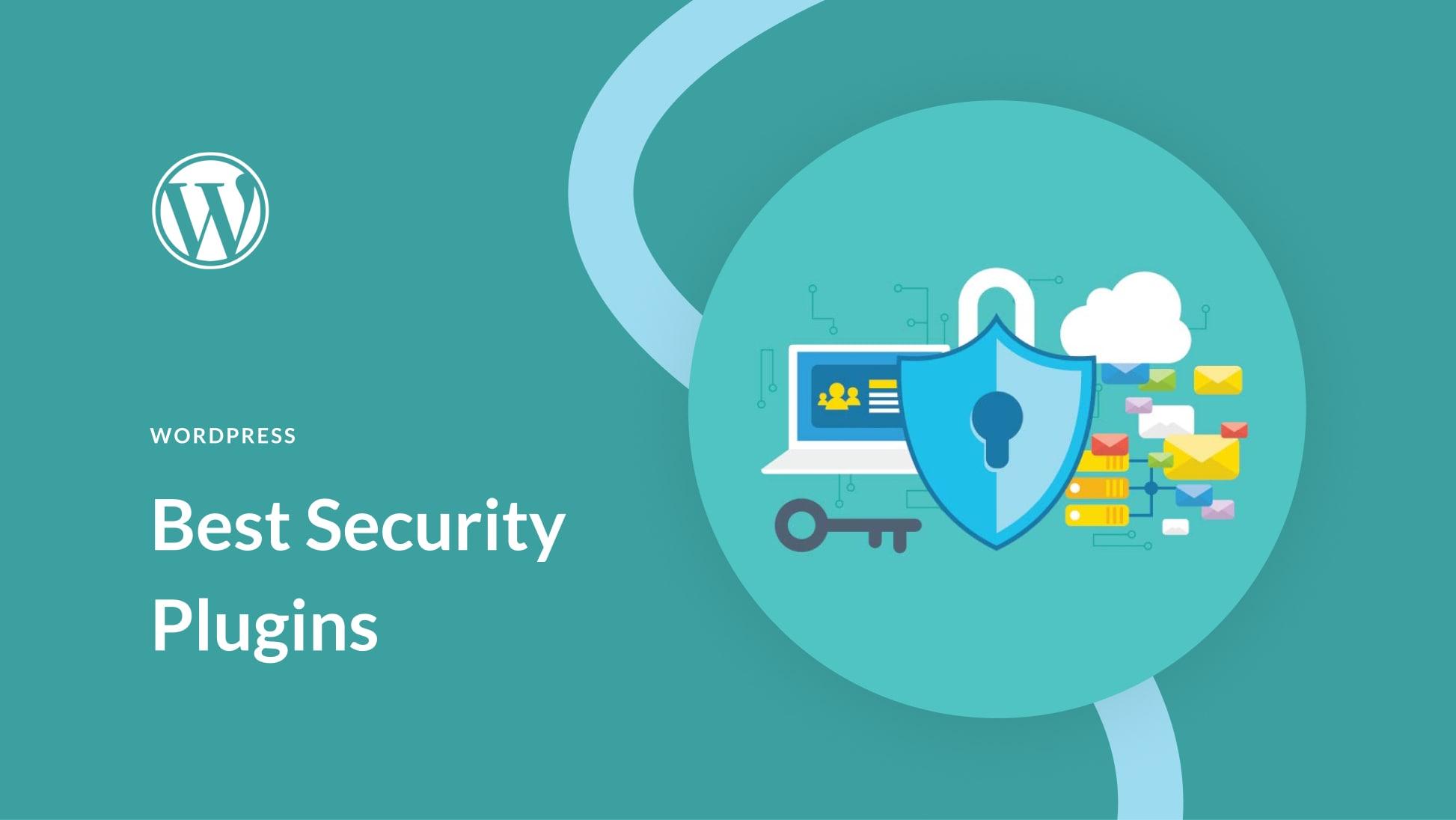
Cost vs Value: Finding the Right Security Plugin for Your Budget
When it comes to choosing a security plugin for your WordPress site, understanding the balance between cost and value is crucial. While it’s tempting to opt for the cheapest option, often, the real value lies in the features and support that come with a slightly higher price tag. Here are some factors to consider:
- Basic vs. Premium Features: Free plugins usually offer basic protection, while premium versions often include advanced features such as firewall protection, malware scanning, and real-time threat detection.
- Support and Updates: Paid plugins typically come with dedicated customer support and regular updates. This can be a lifesaver when a vulnerability is discovered.
- Ease of Use: A user-friendly interface can save you time and frustration. Paid plugins often invest in better design and user experience.
- Reputation and Reviews: Look beyond the price tag. Sometimes, a more expensive plugin has a proven track record and favorable user reviews that justify the cost.
To illustrate the differences, consider the following table comparing three popular WordPress security plugins based on their pricing and key features:
| Plugin Name | Price | Key Features |
|---|---|---|
| Wordfence | Free / $99/year | Firewall, malware scanning, login security |
| Sucuri | $199/year | Website firewall, malware cleanup, security audits |
| iThemes Security | Free / $80/year | Two-factor authentication, brute force protection, backups |
Investing in a reliable security plugin can prevent costly breaches and downtime. Think about the potential financial loss from a hacked site, and it becomes clear that a higher upfront cost might save you money in the long run. Additionally, consider how many sites you maintain; many premium plugins offer discounts for multiple licenses, adding even more value.
Ultimately, the right choice depends on your specific needs. If you’re running a business website or e-commerce platform, a robust security solution is non-negotiable. For personal blogs, a basic option may suffice. Don’t just look at the price—evaluate what you are getting in return. Investing wisely in a security plugin ensures your website remains safe and secure, allowing you to focus on what you do best.
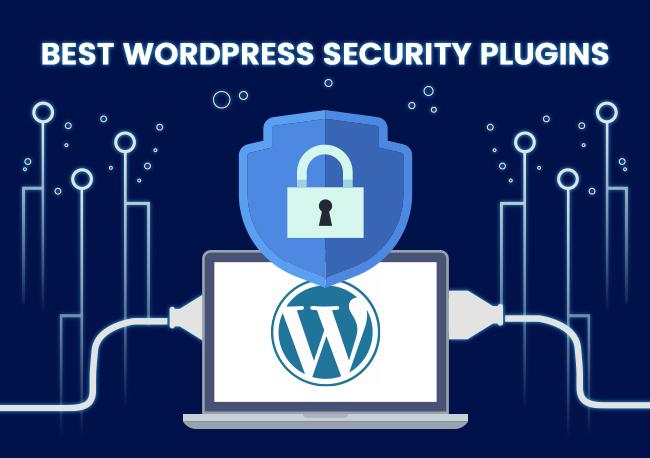
Making the Final Choice: Which Plugin Fits Your Needs?
Choosing the right security plugin for your WordPress website can feel overwhelming, given the plethora of options available. Each plugin comes with its own set of features, strengths, and weaknesses, which can significantly impact your site’s security. To simplify your decision-making process, consider the following factors:
- Security Features: Look for plugins that offer a comprehensive set of features, such as malware scanning, firewall protection, and real-time threat detection. A combination of these elements is crucial for robust security.
- User-Friendly Interface: Opt for a plugin with an intuitive interface. You want a solution that makes it easy for you to manage security settings without having to wade through complicated processes.
- Performance Impact: Select a plugin that is lightweight and doesn’t slow down your website. A heavy security plugin can negatively affect user experience and search engine rankings.
- Customer Support: Reliable customer support can be a lifesaver, especially when dealing with security incidents. Check if the plugin offers prompt support or a community forum for troubleshooting.
- Regular Updates: Security threats evolve constantly. Therefore, choose a plugin that is regularly updated to patch vulnerabilities and improve its features.
To give you a clearer comparison, here’s a brief overview of some popular WordPress security plugins:
| Plugin Name | Key Features | Price |
|---|---|---|
| Wordfence | Firewall, Malware Scanner, Login Security | Free / Premium starts at $99/year |
| iThemes Security | Two-Factor Authentication, File Change Detection | Free / Pro starts at $80/year |
| Sucuri Security | Malware Scanning, Security Activity Auditing | Free / Premium starts at $199.99/year |
| All In One WP Security & Firewall | Brute Force Attack Prevention, Firewall | Free |
As you weigh your options, it’s also beneficial to read user reviews and testimonials. Real-world experiences can give you insights into how effective a plugin is in practice and whether it aligns with your expectations.
Another important aspect to consider is the long-term investment. While a free plugin may offer some essential features, investing in a premium option often provides advanced functionality and additional peace of mind. Think about the value of your website and the potential costs associated with a security breach.
Lastly, don’t overlook the importance of compatibility with your current WordPress themes and plugins. A plugin that doesn’t play well with your existing setup can lead to conflicts and even jeopardize your website’s functionality.

Tips for Enhancing Your WordPress Security Beyond Plugins
While plugins can significantly bolster your WordPress security, relying solely on them isn’t enough. Enhancing your website’s security involves a multifaceted approach. Here are some effective strategies you can implement to safeguard your site beyond just installing plugins:
- Regular Backups: Ensure you have a reliable backup system in place. Use cloud storage solutions or off-site backups to keep your data safe in case of a breach.
- Strong Passwords: Encourage all users to create complex passwords. A mix of uppercase, lowercase, numbers, and symbols can do wonders in preventing unauthorized access.
- Two-Factor Authentication: Implementing two-factor authentication (2FA) adds an extra layer of security. Even if passwords are compromised, 2FA can help keep your site secure.
- Limit Login Attempts: Restrict the number of login attempts to prevent brute-force attacks. This can deter hackers from trying to guess passwords.
- Update Everything: Regularly update your WordPress core, themes, and plugins. Updates often include security patches that protect your site from vulnerabilities.
Another effective way to enhance security is through monitoring user activity. Keep an eye on who is logging in and what they are doing. This can help identify any suspicious behavior early on. Consider implementing user role management to limit access to sensitive areas of your site.
| Security Measure | Description |
|---|---|
| SSL Certificate | Encrypts data between the browser and your website. |
| Firewall | Best defense against unauthorized access. |
| Regular Security Audits | Evaluate your site’s security posture frequently. |
Don’t overlook the importance of server security. Speak with your hosting provider about their security protocols. Ensure they offer robust security measures like malware scanning and automated backups. Choose a hosting solution that prioritizes security to provide a strong foundation for your WordPress site.
educate yourself and your team about security best practices. Hold regular training sessions to discuss potential risks and responses. A well-informed team is your first line of defense against cyber threats.
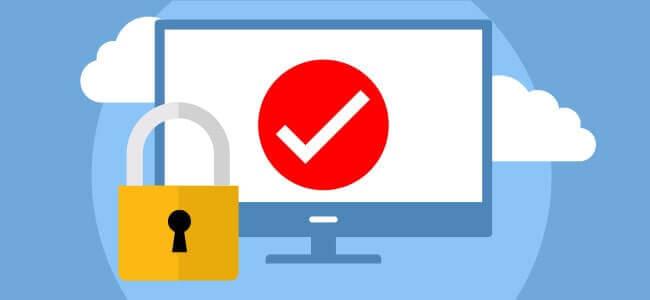
Regular Maintenance and Monitoring: Keeping Your Site Safe
To ensure the longevity and security of your WordPress website, regular maintenance and monitoring are crucial. Even with a robust security plugin installed, neglecting these practices can leave your site vulnerable to attacks and performance issues. Here are some essential maintenance tasks to keep your site safe:
- Update WordPress Core: Always keep your WordPress core updated to the latest version. Each update often includes important security fixes and improvements.
- Plugin and Theme Updates: Regularly update all plugins and themes. Outdated plugins are often the weak link that hackers exploit.
- Backup Regularly: Schedule automatic backups of your website. In the event of a security breach, having a recent backup ensures you can restore your site quickly.
- Monitor User Activity: Keep an eye on user activity, especially for those with admin privileges. Monitoring logs can help you spot suspicious behavior early.
Additionally, employing a security plugin that offers monitoring features can significantly enhance your site’s safety. Look for plugins that provide:
- Real-Time Threat Detection: This feature alerts you immediately to any potential security threats, allowing you to take action before damage occurs.
- Firewall Protection: A good firewall will filter out malicious traffic before it reaches your site, keeping it secure.
- Malware Scanning: Regular scans for malware help identify and eliminate any malicious code that may have been injected into your site.
Consider implementing a maintenance schedule to ensure you’re on top of all these tasks. Here’s a simple table to outline a monthly maintenance checklist:
| Task | Frequency | Status |
|---|---|---|
| Update WordPress Core | Monthly | ✔ |
| Update Plugins and Themes | Weekly | ✔ |
| Backup Website | Weekly | ✔ |
| Monitor Security Logs | Bi-Weekly | ✔ |
Lastly, don’t underestimate the power of a proactive approach. Engaging with your site and making regular maintenance a habit not only protects your website but also enhances its performance. A well-maintained site is more likely to rank higher on search engines, attract more visitors, and convert leads into customers. Choose the right security plugin, set a maintenance schedule, and watch your website thrive.
Frequently Asked Questions (FAQ)
Q&A: What is the Best WordPress Security Plugin for Your Website?
Q: Why do I need a security plugin for my WordPress site?
A: Great question! With the increasing number of cyber threats targeting websites, a security plugin acts like a fortress for your WordPress site. It helps protect against hacking attempts, malware, and other vulnerabilities, ensuring your data and that of your visitors remains safe. Think of it as your site’s personal bodyguard!
Q: What features should I look for in a WordPress security plugin?
A: When choosing a security plugin, look for key features like malware scanning, firewall protection, login attempt monitoring, and regular security updates. Additionally, a good plugin should offer backup options and easy-to-read reports. You want something that not only protects but keeps you informed!
Q: Are free security plugins enough for my website?
A: Free plugins can certainly provide a basic level of protection, but they often come with limitations. If you’re serious about your website’s security, investing in a premium plugin might be worth it. Premium options typically offer comprehensive features, priority support, and regular updates that keep you ahead of potential threats.
Q: What are some of the top WordPress security plugins available?
A: There are several excellent options out there! Popular choices include Wordfence, Sucuri Security, and iThemes Security. Each of these plugins has its own strengths, so it’s worth exploring their unique features to find the right fit for your specific needs.
Q: Can a security plugin slow down my website?
A: It’s a common concern, but a well-coded security plugin shouldn’t noticeably impact your site’s performance. In fact, many plugins offer optimization features to help speed things up! Just be sure to choose a reputable plugin and monitor your site’s speed after installation.
Q: How often should I update my security plugin?
A: Regular updates are crucial! Security vulnerabilities can emerge quickly, so checking for updates at least once a week is a good practice. Many plugins offer automatic updates, which can save you time and ensure your site is always protected.
Q: What if I still get hacked even with a security plugin?
A: It’s a tough situation, but it happens. That’s why choosing a plugin with a solid backup solution is essential. If you do get hacked, you can restore your site to its previous state quickly. Additionally, many security plugins provide guidance on what to do next, so you’re not left in the dark.
Q: Can I use multiple security plugins at once?
A: While it might seem like a good idea, using multiple security plugins can lead to conflicts and performance issues. It’s best to choose one reliable security plugin that meets all your needs rather than trying to combine several.
Q: How can I decide which security plugin is best for me?
A: Consider your specific needs! Think about the type of website you run, your technical expertise, and whether you prefer a free or premium solution. Reading user reviews and trying out demos can also help you make an informed decision. Remember, the best plugin is the one that fits seamlessly into your workflow while keeping your site secure!
Conclusion:
Choosing the right WordPress security plugin is crucial for maintaining the integrity and safety of your website. By doing your research and understanding your needs, you’ll be well-equipped to make the best choice that not only protects your site but gives you peace of mind. Don’t wait until it’s too late—secure your site today!
Closing Remarks
As we wrap up our deep dive into the world of WordPress security plugins, it’s clear that safeguarding your website is not just an option—it’s a necessity. With the ever-evolving landscape of online threats, having the right security plugin can make all the difference in protecting your hard work and precious data.
Whether you’re leaning towards the comprehensive features of a premium option or the solid protection of a free plugin, the key is to choose one that aligns with your specific needs. Remember, the best plugin is one that not only fortifies your site but also fits seamlessly into your workflow.
So, take a moment to reflect on what matters most for your website. Is it real-time threat detection, ease of use, or perhaps customer support? Whichever aspect resonates with you, make an informed choice and take the proactive step to enhance your site’s security today.
After all, a secure website isn’t just about protection—it’s about peace of mind. By investing in a reliable security plugin, you’re not just shielding your site from potential threats; you’re also investing in your online presence and your visitors’ trust. So go ahead, make that choice, and fortify your WordPress website with the best security plugin for you. Your future self will thank you!



